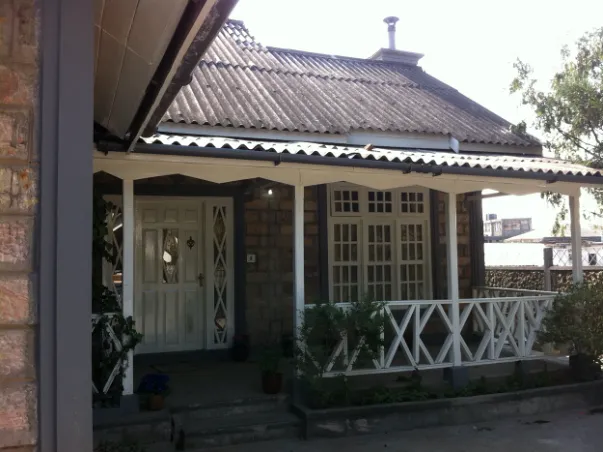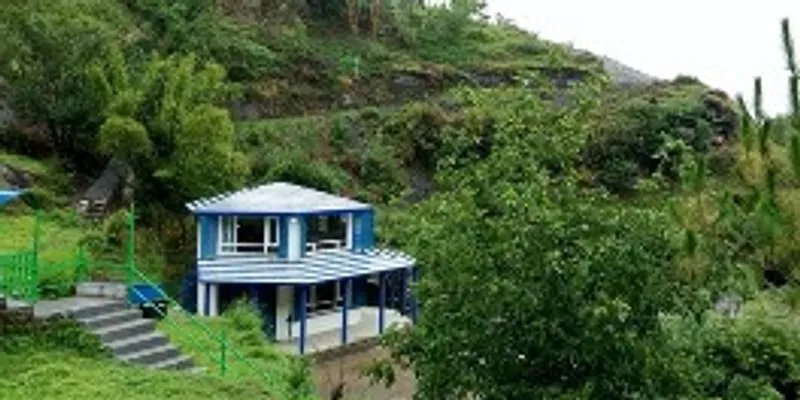Amidst COVID-19, these two women Airbnb superhosts are all set to welcome tourists in the 'new normal’
As the tourism industry slowly limps back to normal, two women Airbnb superhosts, Annie Jyrwa and Desna, tell us how they are preparing to welcome tourists with new measures in place.
With economies all over the world badly-hit by the COVID-19 pandemic, sectors like tourism, aviation and hospitality has taken a beating, what with large populations confined to their homes due to restrictions and lockdowns.
Its effects in India have been no different. According to a study by industry chamber CII, and hospitality consulting firm Hotelivate, the pandemic has dealt a huge blow to the Indian travel and tourism industry, and the entire chain linked to this sector is likely to lose around Rs 5 lakh crore.
Over the years, Airbnb bookings became a favourite for many tourists looking for traditional and authentic guest experience, especially in idyllic, remote areas. However, Airbnb hosts were also severely affected by the pandemic, as tourism came to a grinding halt.
Now, with restrictions easing, and a vaccine for the virus in sight, the industry is slowly testing waters by accepting tourists, but not without due safety measures in place.
Airbnb hosts are gradually preparing to receive visitors as tourism opens up cautiously in different parts of the country.
We asked two Airbnb superhosts what the scene is like, and how they are coping with the 'new normal'.
Superhost Annie Jyrwa - Shillong, Meghalaya
Annie’s journey to hosting started as a guest herself – in a home in Kerala where she was bowled over by the hospitality of her hosts. This experience stayed with Annie forever and also prompted her to become a host in 2016.
Annie’s role as a host is significant in a region where Airbnb, in partnership with the National Commission for Women (NCW), is helping women all across the North East create opportunities in tourism and hospitality, towards curating sustainable, inclusive travel experiences.

Annie's Airbnb in Sillong
“Having traveled widely, both in India and abroad, I have had memorable opportunities to meet other travelers and share stories and a laugh with them. This has motivated me to set up my B&B so that I can, in some way, repay the easy and relaxed hospitality I have enjoyed,” she says.
Annie says during the lockdown, she tremendously missed being a host. As news of the pandemic poured in, she became very worried about the health and well-being of her family, community, country, and the world.
“COVID-19 has affected bookings. People are not traveling to Meghalaya for leisure right now, and my Airbnb mostly attracts those keen on exploring our wonderful culture and natural offerings. But the safety of host families, guests, and local communities must be considered,” she says.
Annie helped in drafting COVID-19 safety protocols for Airbnb guests as well as for a few local hospitality businesses when lockdown restrictions were eased. The protocols included distancing, deep cleaning, and electronic transactions.
For now, she is seeing to guests who are requesting long-term bookings to cover the mandatory quarantine period, as well as guests who are visiting just for the holiday period, and are interested in open, uncrowded spaces.
“With Meghalaya becoming a sort of an escape for people from crowded cities where the pandemic has hit the most, it is only natural that, from a business point of view, more spaces will begin to be open for hosting. This increase in incoming guests through Airbnb will certainly help cover losses suffered during the period of lockdown. We need to be able to turn this pandemic period into an opportunity for growth, especially for rural livelihoods,” she says, as she signs off.
Superhost Desna - Mussoorie, Uttarakhand
Desna always relied heavily on the hospitality of Airbnb hosts, hostels, and fellow travelers while backpacking across unfamiliar cities. Hence, it was only natural for her to learn from them and attempt to extend the same courtesy when she chose to be a host. Her idea of a perfect Airbnb stay experience stems from what she liked best about her little nook in the hills.

Desna's nook in the hills
Belonging to Delhi, Desna’s family has always had a holiday home in the mountains.
“Since we are into construction and believe it to be like art, our spaces are designed to complement the surroundings. We have an in-house team of craftsmen that helps us execute our ideas. A few years ago, I decided to convert one of our cottages into an Airbnb home and loved the experience so much that I have now expanded the listings as well as opened a backpacker hostel in the area,” she says.
When she is not traveling, Desna experiments with art and craft, ranging from matchbox miniatures to kaleidoscopes as well as painting and design.
When she heard of the pandemic, she decided to be extra cautious and emphasise on sanitisation.
“In March, when the risk seemed to increase, we decided to snooze the listings. We were not accepting any guests even before the lockdown was announced. We are situated in rural Tehri Garhwal, so the priority was to protect others and reduce the risk factor for a largely rural mountain community, especially since social interaction is inevitable for many community tasks such as farming, cattle grazing and wood gathering,” she says.
The sudden break in momentum for the tourism business was a cause for concern, but she knew that once things opened up, tourism would boom as people would be eager to get back to travel. Desna was optimistic and took that time off to better prepare for post-lockdown guests.
“We briefed the staff about the situation, put in protocols to ensure staff and guest safety, implemented a new sanitisation and cleaning process, as per Airbnb’s Enhanced Cleaning Protocol guidelines, and installed contactless sanitisers everywhere,” she adds.
Desna’s Airbnb has been fully booked since the beginning of August, and currently has no availability till January. They are seeing guests stay for a month at a time and have even had guests that initially booked for two weeks but extended upon arriving at the cottage.
Post lockdown, she also listed a new property on Airbnb (Rainbow farms, Hisar Berry cottage) which is hosted by her sister and co-hosted by Desna. That too has been booked out by guests for long term stays.
According to her, people are now preferring to come to stay in the mountains, in a remote, quite place surrounded by nature, for long periods where they can even work from.
Other than maintaining a minimum contact policy, Desna ensures an interval between all bookings, so they have enough time to deeply sanitise and clean the entire property. They have also made it mandatory for all guests to present a COVID negative test, taken no more than 96 hours before check-in.
“We are not taking any direct bookings, so any guest wishing to book with us has to send a request first. This enables us to ensure that any concerns and expectations are met beforehand. Our post-lockdown guests are quite self-sufficient and take a lot of precaution themselves. They also prefer to do their own cooking and housekeeping,” she says.
Edited by Anju Narayanan








